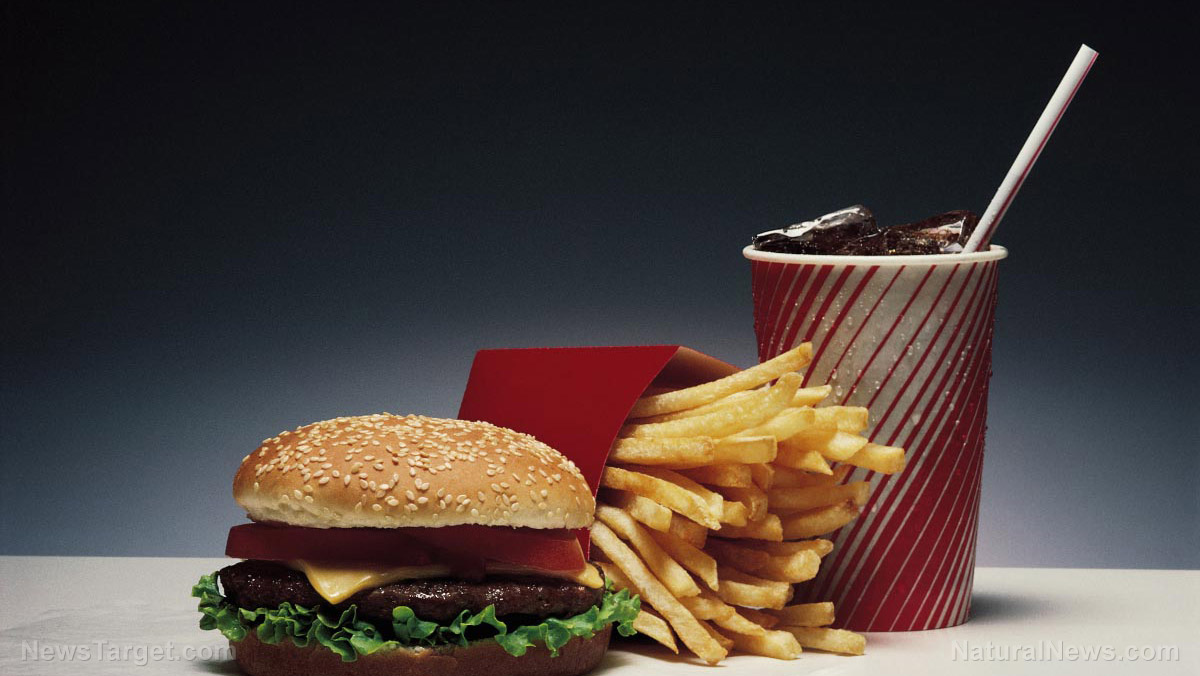Beyond Meat stock plunges as Americans reject Frankenfood burgers
11/12/2021 / By Cassie B.

While globalist organizations like the World Economic Forum continue to push people to consume fake meat products “for the climate,” Americans are largely rejecting chemical-laden Frankenfoods like the Beyond Burger – and shares of the company behind it are tanking as worries mount about their future.
Beyond Meat dropped by nearly a dollar per share as they reported a net loss during the third quarter of $55 million as demand for their fake meat dwindles and higher costs eat away at profits. The stock cratered 19 percent during premarket trading on Thursday.
According to CNBC, they reported third-quarter losses of 87 cents per share, far exceeding the 39 cents per share expected by Wall Street, while revenue also fell short. They reported a fiscal third-quarter net loss of $54.8 million, which is far greater than the $19.3 million net loss reported a year earlier.
The company blamed higher costs for warehousing and transportation as well as inventory write-offs and operational challenges for its woes, but the truth is that consumers just aren’t getting on board with what was once hailed “the next big thing.”
Beyond typically sees rising revenue in the third quarter compared to the second one due to seasonal trends as consumers buy their burgers to grill during the summer; this was not the case this year.
CEO Ethan Brown claimed that new competitors are putting pressure on Beyond’s market share, but CNBC reports that the data does not support the idea that the drop in demand can be attributed to other companies stealing their customers.
The situation does not seem likely to change; their fourth-quarter forecast predicted net sales of $85 to $110 million, while Wall Street was expecting $131.6 million for the quarter.
People just don’t want to eat bioengineered burgers
This should not come as a big surprise. Many medical experts and nutritionists have expressed concerns about the ingredients in Beyond meat and its branded burgers. It’s hard to convince people that synthetic bioengineered plant-based products are somehow better for them than a traditional 100 percent beef burger or, for those who are concerned about animal welfare, homemade burgers made with organic mushrooms, black beans or other whole foods.
Unlike many homemade plant-based burgers, there are actually no vegetables in Beyond Burgers. While they do not contain GMOs like other fake burgers on the market, they do contain similar amounts of calories and fat to a beef burger, along with significantly more sodium. They also have carbs, which a regular beef burger does not contain unless you put it on a bun.
One big sign that people who care about their health should want nothing to do with these products is the fact that Bill Gates is a major investor. He has said that “all rich countries should move to 100% synthetic beef,” replacing real food with highly processed food grown in a lab. Some of the burger’s ingredients include methylcellulose, potassium chloride, expeller-pressed canola oil, pea protein isolate and rice protein.
The CEO of Chipotle Mexican Grill, Brian Niccol, announced that imitation meat products like Beyond are simply too processed to appear on his chain’s menu, and dietitians agree.
Although there are certainly health benefits to be gained by adopting a vegan diet, and there’s no question that there are many problematic aspects to meat farming, these burgers are not the healthy alternative they try to position themselves to be – and kudos to so many Americans for being able to see that. Beyond burgers are vegan junk food, and people who are health-conscious don’t want anything to do with them.
Sources for this article include:
Submit a correction >>
Tagged Under:
Beyond Burger, Beyond Meat, biotech, canola oil, fake meat, food science, frankenfood, genetically engineered, ingredients, vegan, veggie burgers
This article may contain statements that reflect the opinion of the author
RECENT NEWS & ARTICLES
CleanFoodWatch.com is a fact-based public education website published by Clean Food Watch Features, LLC.
All content copyright © 2018 by Clean Food Watch Features, LLC.
Contact Us with Tips or Corrections
All trademarks, registered trademarks and servicemarks mentioned on this site are the property of their respective owners.





















